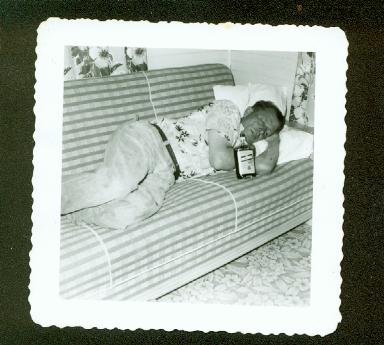Schwarz
View current page
...more recent posts
ken johnson for the new york times sets his critical sites on appropriation art.
are any of us safe?
here we are reminded that irony was suspended shortly after 9/11. i contend that that suspension lasted through the 2004 elections and only returned in a significant way via colberts wh press diner appearance. i think katrina was a crack in the magicians mirror we know as the bush and co parallel universe. the cheney hunting event was a little peak behind the curtain too. a society needs irony to self regulate. some things can only be spoken first through humor. then we start to get comfortable with the truth again and with that a return to normalage. i find the term bush "bubble" a misnomer or at least an severe understatement. thats why this story is so significant and a watershed event for me. for the first time in a long while i sense weve turned the corner in accepting/not accepting the whole bush co alternate universe routine. god bless andy breckman too, i think he missed the irony memo altogether.
"Soon after Sept. 11, Graydon Carter, editor of Vanity Fair, announced that we had reached the "end of the age of irony." The comment was particularly odd since Carter was one of the co-founders of Spy, the often brilliant and irony-rich satirical magazine of the 1980s.
[....]
Why did the media so uniformly ignore Colbert? For one thing, his performance as a Republican-licking pundit held a mirror up to the media's sycophancy as much as it criticized Bush. So, by ignoring the criticism of them, the media whores performed in just the way Colbert described their reporting of, say, the period before the Iraq invasion. They ignored reality -- it has a liberal bias, Colbert observed -- and slavishly licked Bush's ass clean.
Of course, many in the media, as well as the conservative robots on the Internet, produced their own reason for not reporting Colbert's shtick. It simply wasn't funny, they said. Well, of course it isn't too funny if your own idiocy was being reflected.
That again comes back to the question of satire's function. It isn't meant to produce slapstick laughs. It is meant to make people think about the absurdity in which they are participating. In fact, satire assumes, and usually demonstrates, that its object is capable of behaving differently."

...the truly important issue isn't whether one found it funny or not. Humor is subjective, thank god. Obviously I and a lot of other people found it funny. But laughter is an involuntary physical reaction and there's no way to create such a reaction through subsequent argumentation. Dissection kills the joke---unless you're Andy Breckman (or Colbert, for that matter) and you work on a meta-level where the agonizing death of the joke is the meta-joke.fatherflot
...
My problem is the attempt by the so-called "liberal media" to make the incident disappear down the memory hole, compounded by the faulty logic which claimed that since the objects of the satire were made uncomfortable rather than amused, it was ipso facto not funny and therefore not worthy of mention in stories specifically dedicated to the night's events.
Whether one found it funny or not is immmaterial to the fact that despite the efforts of the mainstream media to kill the story, it has become one of the defining moments of the most secretive, imperial, and stage-managed presidency in US history. Colbert got inside the bubble and made The Decider squirm----and millions of people around the world felt like the message he delivered ("we're onto your fathomless bullshit and we have nothing but contempt for you and those who keep you comfortable") was their own.
